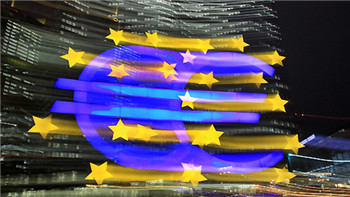
In his 1898 poem “Waiting for the Barbarians”, the Greek poet CP Cavafy describes a polity that invents or exaggerates mysterious foreign threats to prop up its decaying power structures. The listless ruling elites, hollow public ceremonies and pervasive forebodings of doom depicted in Cavafy’s masterwork should serve in 2016 as a wake-up call for Europe.
在1898年发表的《等待野蛮人》(Waiting for the Barbarians)一诗中,希腊诗人卡瓦菲斯(CP Cavafy)描绘了一种政体,这种政体通过虚构或夸大神秘的外部威胁来支撑其日益腐朽的权力结构。卡瓦菲斯名作中刻画的那些无精打采的统治精英、空洞的公共仪式以及无处不在的末日先兆,应当对2016年的欧洲起到警示作用。
Whether it concerns terrorism, immigration, homegrown political extremism, the eurozone’s unity, unemployment, lacklustre economic growth or even Europe’s military defences, national governments and the EU apparatus in Brussels look increasingly as if they are not up to the numerous challenges bearing down simultaneously from every direction. This should worry not just Europeans but their friends and partners in the Americas and Asia.
不论是关于恐怖主义、移民、本土政治极端主义、欧元区的团结一致、失业问题、乏力的经济增长,抑或是欧洲的军事防御,各国政府、驻布鲁塞尔的欧盟(EU)机构看起来似乎都越来越无力应对同时来自各个方向的众多挑战。这不仅应引起欧洲人的担忧,他们在美洲及亚洲的朋友与合作伙伴同样应感到担忧。
The malaise goes much wider and deeper than the EU, which is not to blame for everything that happens or does not happen in Europe. It is partly a matter of Europe’s relative global decline, which makes it difficult to manage events even in its own neighbourhood. It is partly a matter of cultural, economic, political and technological change in western societies as a whole. This disrupts familiar patterns of life, undermines the trust of citizens in their rulers and weakens the ability of governments to act decisively.
这一疾患的广度和深度远远超出了欧盟(不应将欧洲所有已发生或未发生之事都归咎于它)的范围。这部分事关欧洲在全球相对衰落——使得欧洲甚至难以管理好自己地盘内的事务;部分事关西方社会作为一个整体在文化、经济、政治及技术领域的变化。这种变化瓦解了人们熟悉的生活方式,降低了公民对统治者的信任,削弱了政府果断采取行动的能力。
Nonetheless, the EU is the focus of concern. Its inadequate responses to one crisis after another create the unfortunate impression that, despite being a club of affluent democracies, with 28 member states and more than 500m inhabitants, the EU is doomed always to be less than the sum of its parts.
尽管如此,欧盟仍是问题的焦点。欧盟对一个又一个危机的乏力应对给人留下了这样一种不良印象,即虽然身为富裕民主国家俱乐部,拥有28个成员国以及超过5亿居民,但欧盟作为一个整体注定总是小于各部分之和。
Rousing appeals from political leaders for a more efficient and closely integrated EU — and there have been lots of them in 2015 — turn out too often to be mere lip service to an ideal.
欧洲各国政治领导人对于更高效、一体化程度更深的欧盟的大声疾呼(2015年有很多这样的呼吁),结果往往只是理想化的空谈。
The EU’s pitiful efforts at defence collaboration illustrate the problem. It was none other than Jean-Claude Juncker, the European Commission president, who said in October: “If I look at the common European defence policy, a bunch of chickens would be a more unified combat unit in contrast.”
欧盟在防务合作方面的糟糕进展说明了这一问题。不是别人,正是欧盟委员会(European Commission)主席让-克洛德容克(Jean-Claude Juncker)去年10月时说:“如果让我评价欧洲的共同防务政策,一群小鸡倒更像一个统一的作战单元。”
This is not to say that the EU is on the brink of falling apart. As they demonstrated during the eurozone crisis, and as they are demonstrating again in the refugee and migrant emergency, Europe’s leaders have a tried and tested method for coping with urgent problems. They find solutions that are temporary, barely satisfactory and designed chiefly to serve the purpose of somehow keeping the EU show on the road.
这并不是说欧盟正处于分崩离析的边缘。欧洲领导人拥有应对紧急问题的屡试不爽的办法,他们在欧元区危机期间已经证明了这一点,在难民和移民危机中还在继续证明这一点。他们总是能找到临时的、差强人意的解决方案,这些方案在设计时主要就是为了实现这样一个目的,即不管怎样让欧盟把戏接着唱下去。
In this spirit they have arranged three hugely expensive financial rescues of Greece, but they have refused to grasp the nettle of a comprehensive write-off of Greek debt. They have created a semi-banking union which has common supervision and a common mechanism for winding up failed banks, but which lacks common deposit insurance. In both cases it is national political pressures, primarily in Germany, that are the obstacle.
本着这种精神,他们已经为希腊安排了三轮成本高昂的金融纾困,但却一直拒绝快刀斩乱麻,全面免除希腊的债务。他们组建了一个准银行业联盟,这个联盟拥有单一监管机制以及对受困银行进行清算的单一清算机制,但却尚未建立共同存款保险机制。在上述两个例子中,主要障碍都是各国(主要是德国)国内的政治压力。
Just as the eurozone crisis split the currency union between northern and southern Europeans, so the refugee emergency is dividing the EU between its older western European member states and its newer central and eastern ones. The Schengen system of border-free travel, a cornerstone of EU integration, is already fragmenting along west-east lines. If the barriers that separated the two halves of Europe before 1989 are not to re-emerge, it will be essential that western Europeans resist the temptation of imagining that they would be better off in a union, as in the cold war era, of 15 or fewer nations.
正如当初欧元区危机造成欧元区南北分裂一样,难民危机同样使欧盟分裂成老牌的西欧成员国和后加入的中东欧成员国两部分。免签证过境的申根体系(Schengen system)——欧盟一体化的基石——已经在沿着东西欧分界线破裂开来。如果要使1989年以前把欧洲分裂成两半的障碍不再重现,至关重要的一点是,西欧人必须抵制这样一种诱惑,即幻想像冷战时期那样保持一个只有15个或者更少成员国的欧盟,他们将过得更好。
To avert Schengen’s complete disintegration, the EU is pinning its hopes, and 3bn of its money, on Turkey to stem the tide of incoming war refugees and migrants from the Middle East, north Africa and beyond. The EU is also proposing to set up a powerful border and coastguard agency.
为了防止申根体系的完全解体,欧盟正寄希望于土耳其能够遏制来自中东、北非以及其他地区的战争难民和移民潮,并将向土耳其提供30亿欧元来帮助实现这一目标。欧盟还提议建立一支强大的边境与海岸警卫机构。
The most serious question for the EU in 2016 will be what consequences will follow if neither of these measures is effective, and if a European city suffers a terrorist rampage like the Paris attacks of November 13.
2016年,欧盟面临的最严重问题在于,如果这些措施都没有效果,如果一座欧洲城市遭受如同巴黎去年11月13日发生的恐怖袭击,将会出现什么样的后果。
A related risk is that, despite the success of mainstream democratic parties in beating back the far-right National Front in France’s December 13 regional elections, rightwing populists will encroach more closely on the citadels of European power. Arguably, however, a more insidious threat to democracy comes from the willingness of respectable centre-right European politicians to borrow rhetoric and policies from their extremist rivals. This practice corrodes public discussion by promising simple solutions to complicated problems.
相关风险在于,尽管主流民主政党在法国去年12月13日举行的地方选举中成功击败了极右翼的国民阵线(National Front),但右翼民粹主义者将进一步侵蚀欧洲的权力中心。然而,可以说,民主面临的更为隐秘的威胁,来自正派的中右翼欧洲政治家愿意从他们奉行极端主义的竞争对手那里借用话语和政策。通过对复杂问题承诺简单的解决方案,这种做法让公共讨论变质。
More than at any point since its creation in the 1957 Treaty of Rome, the EU appears vulnerable over the coming 12 to 24 months to a succession of dreadful blows and upsets.
未来一两年,欧盟似乎比自1957年随着《罗马条约》(Treaty of Rome)签署宣告成立以来的任何时候都更容易受到一系列可怕打击与混乱的冲击。
All are potentially fatal to the EU’s unity — not least Britain’s referendum, due by the end of 2017, on whether to stay in the bloc — but not necessarily to the EU’s survival as such.
所有这些(尤其是英国定于2017年底之前举行公投决定是否脱离欧盟)对欧盟的团结一致可能是致命的,但对欧盟的存续却未必致命。
Like Cavafy’s imaginary state, or like the Holy Roman Empire, which lasted for 1,000 years before Napoleon put it out of its misery in 1806, the EU may not disintegrate but slip into a glacial decline, its political and bureaucratic elites continuing faithfully to observe the rites of a confederacy bereft of power and relevance. It is not an outcome that any European with a grain of common sense should wish for. But it is no longer inconceivable.
如同卡瓦菲斯虚构的国度或是在1806年被拿破仑(Napoleon)终结之前延续了1000年的神圣罗马帝国(Holy Roman Empire)一样,欧盟或许不会解体,但会陷入缓慢的衰落,其政治和官僚精英继续忠实地为一个丧失了威力与重要性的联盟举行仪式。这是任何稍微拥有常识的欧洲人都不应期待的结果。但这个结果已不再是天方夜谭。












